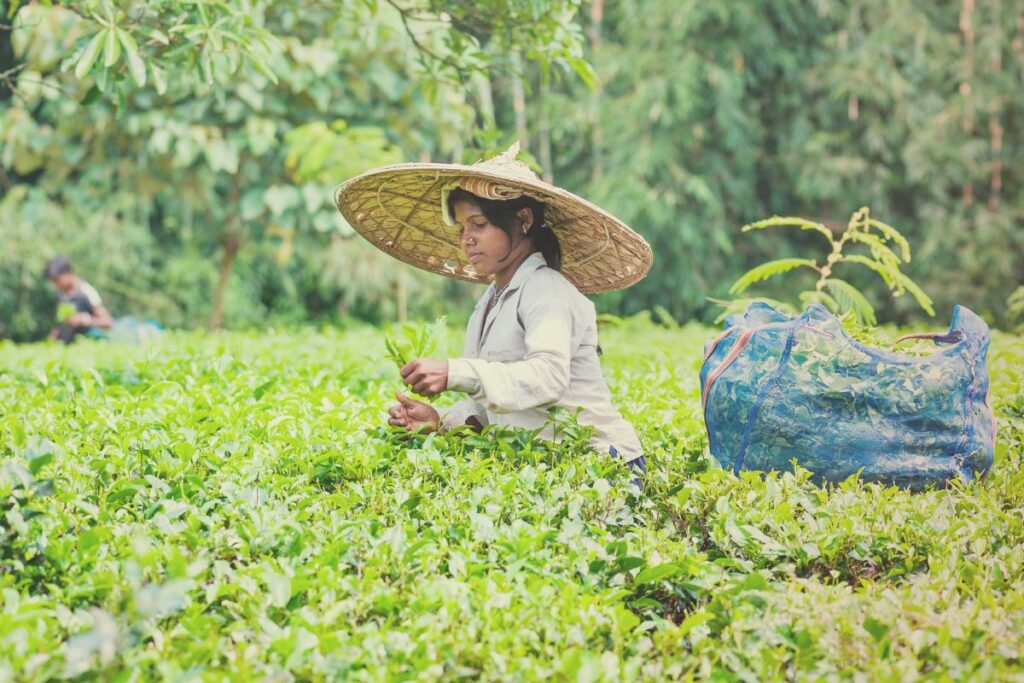
Introduction
Ecotheology is a branch of theology that examines the spiritual dimensions of our relationship with the natural world. It explores how religious and spiritual beliefs influence our attitudes towards the environment and our responsibilities as earth stewards.
Indigenous communities throughout the world, including India, have developed distinctive ecotheological perspectives that emphasise the sacredness of the natural world and the interconnectedness of all life forms.
In this article, I suggest that indigenous women play an important role in their communities as carriers of ecological knowledge, even as they lead their families as followers of Jesus Christ.
Indigenous Women and Ecological Knowledge
Indigenous women in traditional religious practises often play important roles within their communities, acting as intermediaries between the human and spiritual domains. These practises have a strong foundation in nature, as they involve conducting sacred ceremonies and rituals that align with the seasons, natural cycles, and the welfare of the land.
Upon embracing Christianity, individuals find their commitment to such similar practises strengthened by their belief in Jesus and belief in the existence of the Creator God. Consequently, they develop a profound comprehension of the interdependence of all living entities i.e., the Divine, humanity, and the natural world.
Indigenous women typically assume the role of gathering food, medicine, and other vital resources from their immediate ecosystems.
For example, indigenous women all over the world, particularly among the Nagas in Northeast India, have played an important role in preserving plant, fruit, and tree seeds through passing down traditional knowledge and practises.
Seed preservation is not only an important aspect of indigenous cultures, but it also contributes significantly to global biodiversity protection and food security.
As a community that practices oral tradition, the intergenerational transmission of traditional knowledge regarding plant and animal life enables the implementation of sustainable harvesting practises that uphold the ecological equilibrium.
This knowledge is essential for the preservation of biodiversity and the promotion of ecological resilience. As they age, indigenous women share ecological knowledge to their daughters.
In addition, indigenous women are the guardians of cultural heritage, which includes oral traditions, folklore, and ancestor knowledge. Within this repository of knowledge, numerous narratives take centre stage, illuminating the profound intersection between faith-based narratives and the intricate ecological connections that bind humans and nature.
As bearers of these narratives, indigenous women perform a sacred duty, not only preserving their cultural and spiritual legacies but also forging an unbreakable connection between God, humanity, and the natural world.
In doing so, they provide profound insights into the intricate relationship between God, humanity, and ecology, thereby enhancing our understanding of the holistic worldview that underpins their sustainable practises and profound respect for the environment and commitment to God.
Recommended for you
Explore the fascinating intersection of technology and spirituality, and uncover how the digital landscape shapes our spiritual experiences.
Ecotheological Dimensions
The central focus of indigenous eco-theology often centres on a sacred cosmology that perceives the earth as a living entity. Indigenous women, in their capacity as bearers of this particular worldview, perceive the earth as a maternal figure, a sustainer, and a fundamental wellspring of existence.
This is very similar to how God is represented metaphorically in feminine terms, especially as a nurturing and motherly figure in Isaiah 66:13. The imagery here emphasises God’s gentle and nurturing attributes, emphasising God’s ability to console and protect God’s people in the same way that a loving mother would.
When individuals integrate these perspectives with ecology, it promotes a strong sense of responsibility towards the nurturing, preserving, and safeguarding of the earth.
Also, indigenous women’s ecotheological beliefs emphasise the inherent interconnectedness among all forms of life. It is acknowledged that the welfare of human communities is intricately interconnected with the state of ecosystems.
According to Romans 8:19-22, ecosystems and human societies are inextricably linked. The passage describes the creation’s suffering and longing for liberation from decay and captivity. This might be interpreted as a metaphor for the natural world’s suffering and degradation because of different circumstances.
It emphasises the idea that human actions and decisions that destroy ecosystems have an impact on creation itself. In religious terms, this might be interpreted as an acknowledgement of human responsibility for caring for and stewarding the natural world.
This viewpoint presents a critique of anthropocentric worldviews and promotes comprehensive and sustainable strategies for the management of resources. The adoption of such ecological perspectives can be considered inherent, as they offer individuals a means of ensuring long-term sustenance in relation to food.
Indigenous eco-theology fundamentally upholds a set of environmental ethics deeply rooted in deep respect for nature, reciprocity, and stewardship, in accordance with the creation account depicted in the book of Genesis.
Indigenous women play critical roles as carriers of this ethical framework, guiding their communities towards sustainable and virtuous interactions with the environment.
Indigenous women embrace their sacred duty to nurture and protect the earth, fostering a sense of spiritual interconnectedness between humanity and the natural world, just as God entrusted humanity with the responsibility of tending to the Garden of Eden.
In this way, indigenous eco-theology echoes the biblical command to look after the earth with wisdom and care, reinforcing the idea that environmental stewardship is an inherent part of their faith and cultural heritage.
Conclusion
Indigenous women, as bearers of ecological knowledge in their communities, embody ecotheological principles in their daily lives. Their spiritual connection to the earth and God, environmentally sustainable resource management practises, and role as faith and cultural preservationists make them invaluable custodians of ecological wisdom.
Recognising the importance of indigenous women in ecotheological discourse as well as broader environmental discussions is critical for fostering a more inclusive and holistic approach to today’s environmental challenges.
Incorporating their perspectives can help us better understand our responsibilities as earth stewards and inspire long-term, interconnected relationships with the Creator and the natural world.








